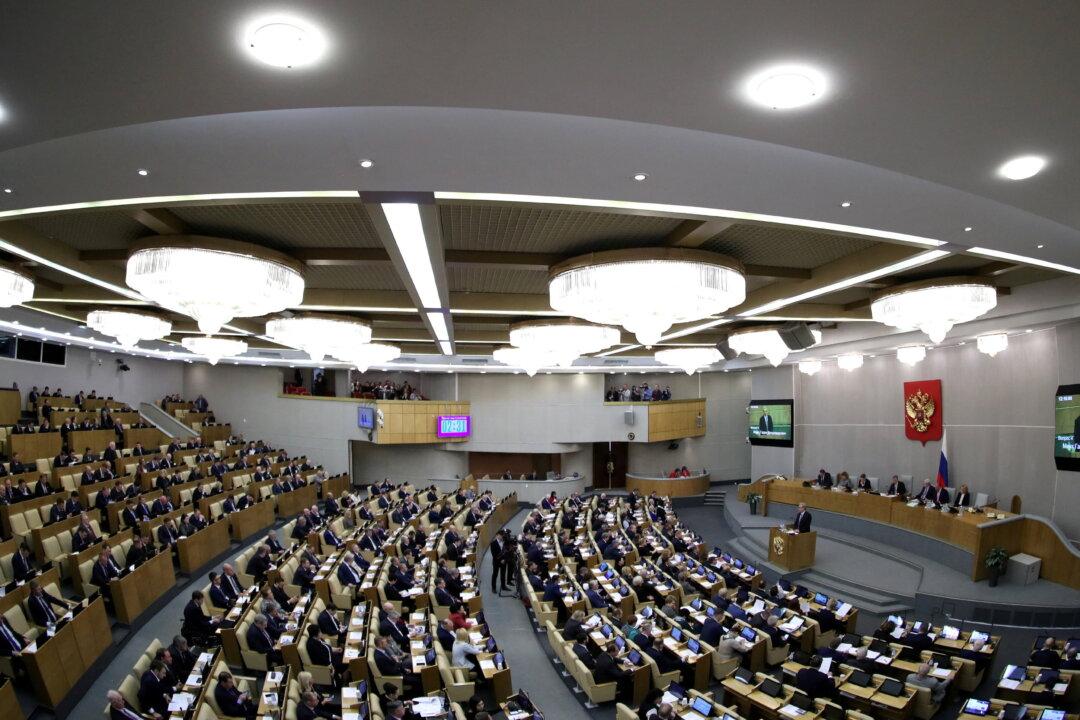LONDON—Russia’s parliament on Tuesday passed a pair of bills ending the European Court of Human Rights’ (ECHR) jurisdiction in the country.
Parliament’s lower house, the Duma, approved two bills—one removing the country from the court’s jurisdiction and a second setting March 15 as the cut-off point, with rulings against Russia made after that date not to be implemented.





